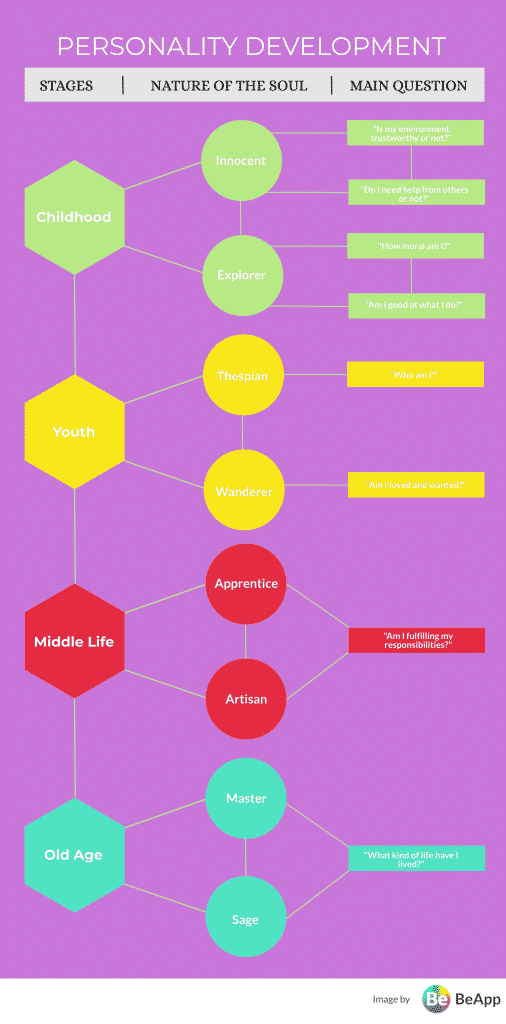What is personality development and isn’t that the same thing as just getting older?
This article will clear all that up. There are many different ways to view or define “personality” but here we’re going to skim the surface of traditional psychology’s definition.
We can break personality development into two parts. Personality means organized patterns of behavior. It includes genetics, upbringing, culture, location, everything that influences these organized patterns. By development we mean the emergence of these patterns.
The Introduction of Personality Development
This sounds deep and complicated, do I need a PhD?
No, not unless you plan to start tapping into people’s personalities for a living while wearing a lab-coat or ugly sweater.
Let’s take a brief look at the history of personality development.
Ancient Greece
HIppocrates came up with the “Two Pillars of Temperament” which were hot/cold and moist/dry with four combinations of hot/dry, hot/moist, cold/dry, cold/moist. This mostly pertained to medicine. However, Hippocrates made the connection that these characteristics influenced a person’s personality. Next Aristotle and Plato went on to develop the discussion and take all the credit for it.
18th Century
Fast-forward to Franz Gall. He believed that measuring your skull was the key to learning about your inner thoughts. His findings were less significant than the scientific conversation he started. Personality, as a topic, was no longer stuck in the realm of philosophy (thanks a lot Plato and Aristotle).
19th Century and Personality Development
Phineas Gage, the hero of Psych 101, came along in the 19th Century. If you’re not familiar with him, check it out, it’s fascinating. Here’s the short and gory version: Gage was working on the railroad until it exploded a rod through his head and shredded his brain. He didn’t die though. He was miraculously “fine”. Except then he was a basket case and lost all control of his emotions. Phineas proved that personality development was linked to different areas of the brain.
20th Century
Sigmund Freud conceptualized personality when he published The Ego and The Id. This concept accounted for the human need for survival as well as a basic outline of how and why we do things.
Carl Jung – 1875-1961
Carl Jung was a student of Freud’s, and his work is still being investigated and applied today. Jung published Psychological Types which distinguished different types of personalities. The Myers-Briggs-Type-Indicator is still a popular tool. I think I took it in high-school and it told me I was E.T. Something like that…
Personality Development Stages
How do I know which stage I’m in?
That depends which cult you are a member of. I mean…school of thought.
There are different approaches to understanding this topic, and so there are different definitions regarding stages of development. The image below was put together based on the common denominators that I found.

Social Cognitive Theory
What’s that? This just got more complicated didn’t it…
Actually, this might help to narrow things down.
Social Cognitive Theory began in the 1960 with Albert Bandura. It states that learning always has a social context. Your person, environment, and behavior all play a role.
Notable Authors
Who are the thought leaders on the subject of Social Cognitive Theory?
Here’s a short list of heavy literature
- Edwin B. Holt – The New Realism: Cooperative Studies in Philosophy
- Neal E. Miller and John Dollard – Social Learning and Imitation
- Albert Bandura – Social Foundations of Thought and Action: A Social Cognitive Theory
What is an Archetype?
Ready to go deeper into learning about personality development? Go here to learn about archetype and which one embodies your personality: What is an Archetype?
Or you can skip ahead and learn your Hero Archetype



